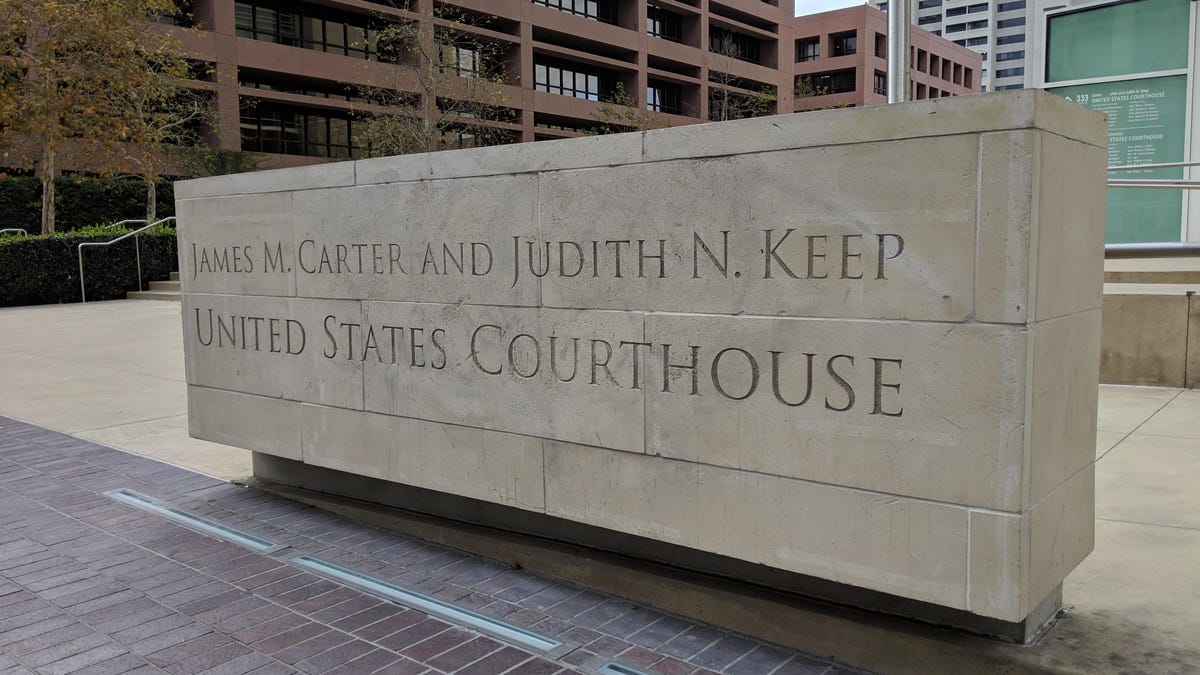Qualcomm wants $31 million in damages in Apple patent case
That’s based on $1.40 per allegedly infringed iPhone.

Qualcomm and Apple are in trial over patents in San Diego, California.
Qualcomm wants Apple to pay it $31 million in damages for violating its intellectual property, the chipmaker said Friday.
The trial, just the latest twist in a long-standing legal feud between the two companies, centers on three Qualcomm technology patents which the company claims Apple used without permission on some versions of its iPhones. The figure is based on $1.40 per allegedly infringed iPhone, Qualcomm argued.
One patent allows a smartphone to quickly connect to the internet once the device is turned on. Another deals with graphics processing and battery life. The third lets apps on your phone download data more easily by directing traffic between the apps processor and the modem.
The $31 million in damages would be a drop in the bucket for Apple -- which briefly became a $1 trillion company last year -- but a victory for Qualcomm would help to brandish its reputation as a mobile components innovator and lend credibility to the idea that much of those innovations went into iPhones.
The figure was calculated by Patrick Kennedy, an economist and managing director at Torrey Partners, which Qualcomm called to the stand as an expert witness. The damages are for iPhones sold from July 2017 and contain chips used by Intel, which replaced Qualcomm as a components supplier. In 2016, the company started using Intel modems in some models of the iPhone 7 and 7 Plus. Now, Apple has opted for Intel's modems over Qualcomm's in all its latest phones.
In cross-examination, Apple counsel Joe Mueller sought to undermine Kennedy's conclusions, which were based on a technical analysis by another Qualcomm witness. Mueller said he was overstating some of the value of the patented technology.
The legal clashes between the two companies has become a wide-ranging saga. Two years ago, the Federal Trade Commission, aided by heavyweights including Apple and Intel, accused Qualcomm of operating a monopoly in modem chips. The agency argued Qualcomm's high royalty rates stopped competitors from entering the market, which has driven up the cost of phones and hurt consumers. That trial took place in January, and the parties are currently waiting for a decision.
The San Diego trial, presided over by US District Judge Dana Sabraw, sets the stage for an April meeting between the two companies over licensing deals. The two companies have been arguing over royalties Apple paid Qualcomm for licensing the chipmaker's technology. Apple paid $7.50 per iPhone, but Apple COO Jeff Williams testified in January that the price should have been a fifth of that amount.
The current trial over patents is more technical than the other parts of the legal battle, but it's had its fair share of drama. On Friday, Apple's counsel said a key witness would testify next week, after the defense said yesterday he had backed out.
Apple has argued that one of its former engineers, Arjuna Siva, co-invented one of the technologies in question and should be named on the patent. But on Thursday Apple said Siva, who now works at Google, had retained a new counsel and would not testify. Apple initially alleged witness tampering because the Siva's new counsel was a former attorney at Quinn Emanuel, the law firm now representing Qualcomm.

